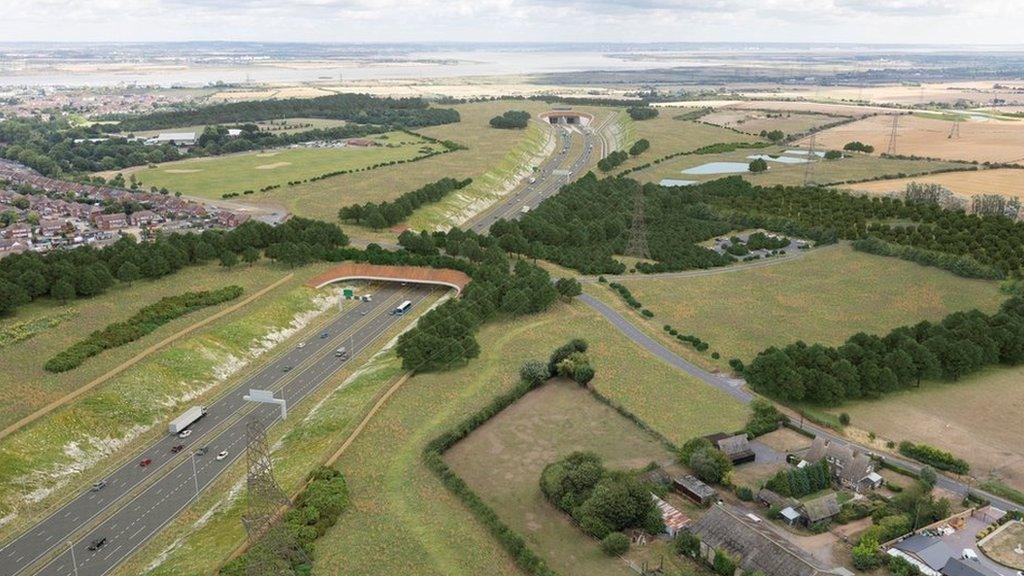Warning big infrastructure projects moving too slowly
- Published
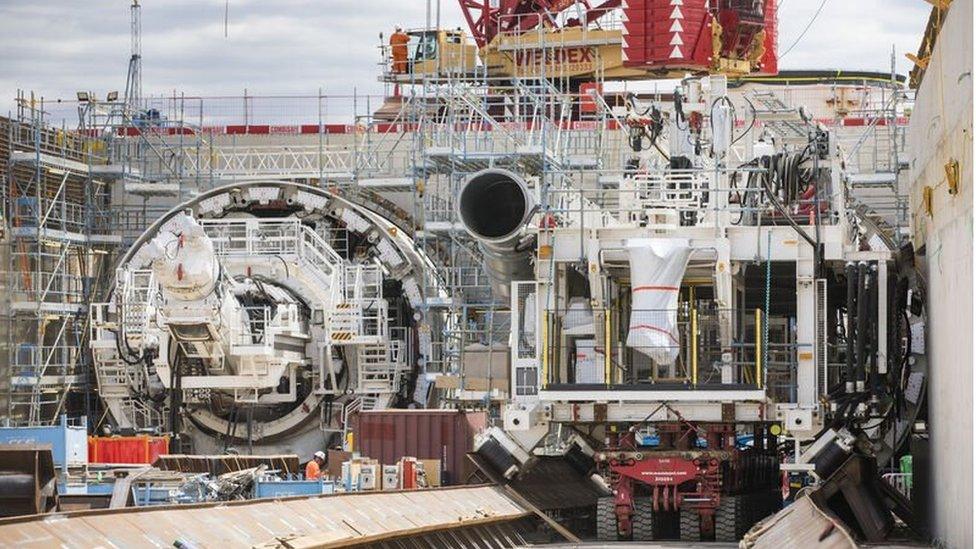
The first drill which began boring the tunnel for HS2 in West London
The government is moving too slowly with its infrastructure projects to meet its economic targets and climate goals, a new report suggests.
The National Infrastructure Commission (NIC) said it should focus on fewer, bigger and better targeted initiatives for growth and a lower carbon economy.
It said hyperfast broadband coverage had improved but advances in UK homes' energy efficiency were "negligible".
The government said it was committed to net zero.
The Commission said progress towards major infrastructure objectives had stuttered over the last year "just as the need for acceleration has heightened".
"In a range of areas government is off track to meet its targets and ambitions," the panel of independent experts said.
The NIC called for a "greater sense of certainty" around progressing HS2, which earlier this month the government said was being delayed by two years.
Similarly, it said more clarity was needed for Northern Powerhouse Rail - a major rail system to for the north of England - stressing that delays inevitably push back the economic benefits for communities.
There had been positive growth in broadband and renewable electricity, both of which had enjoyed a "relatively stable policy environment", the report said.
But the NIC was critical of the installation of low carbon heating solutions or the securing of a sustainable balance of water supply. The report pointed out the gap between ambition and reality: the government wants to install at least 600,000 heat pumps each year by 2028 but in 2021 only 55,000 were fitted.
Meanwhile, 1.5m gas boilers were installed, the Commission said.
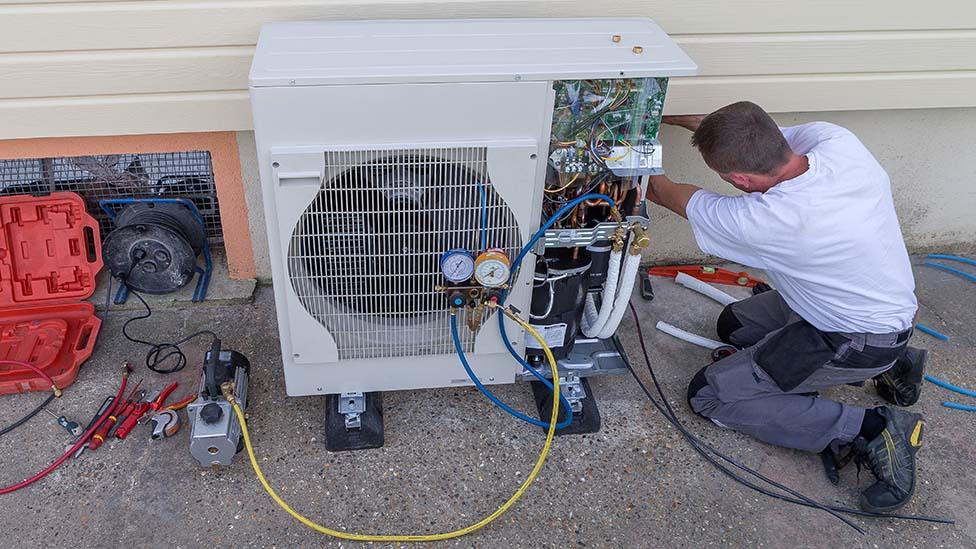
It noted the government wants 300,000 public electric vehicle (EV) charge points installed by 2030 but has 37,000 in place.
The Commission said the government needed "policy staying power" to deliver long-term goals.
It urged government to move away from "small scale funding and repeated consultations" to focus on fewer but bigger projects and to allow regional centres greater funding and decision making powers. It said "unblocking" the planning regime for nationally significant infrastructure projects was the first big step.
It identified 10 priorities including an acceleration of home energy efficiency improvements and the faster roll out of EV public charge points.
It also highlighted the need to finalise proposals on water efficiency labelling and new building regulations to achieve the 110 litres per day consumption target by 2050.The Commission also warned that the UK must remain attractive to investors and said policies in the EU and US make the "investment environment more challenging".
"Ambitious and stable policy from government, alongside effective regulation, is critical for providing the private sector with the certainty it needs to invest," the report said.
In a statement, a Treasury spokesperson said: "We are committed to achieving our net zero goals and are spending £12.6bn this decade to cut national energy consumption by 15%.
"Delivering high quality infrastructure is the foundation of our future growth and we have maintained our total investment at record levels over the next five years with the Commission recognising our progress on gigabit broadband rollout and renewable electricity generation."
Earlier in March Transport Secretary Mark Harper said the government was investing more than £40bn in transformational transport schemes over the next two financial years across the country.
- Published22 March 2023
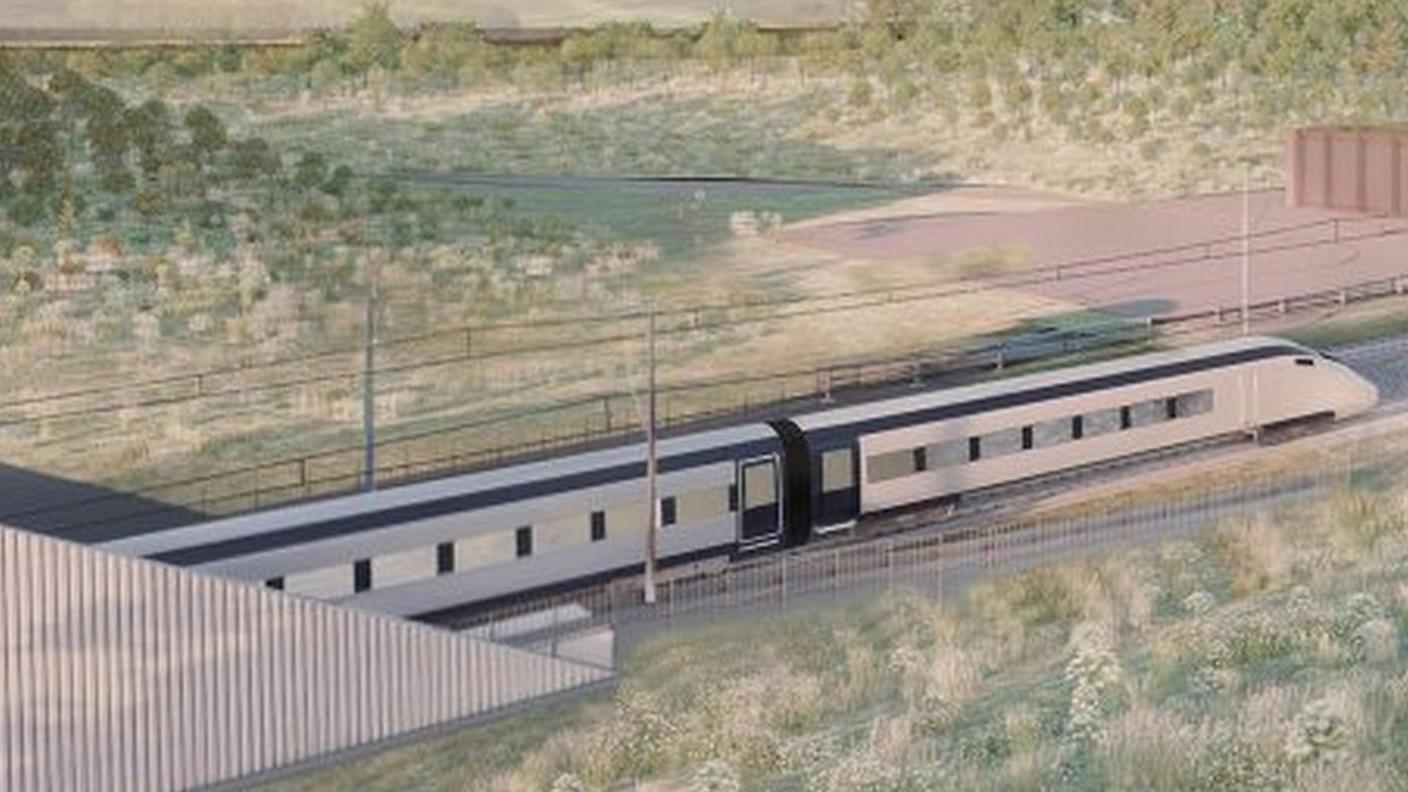
- Published10 March 2023
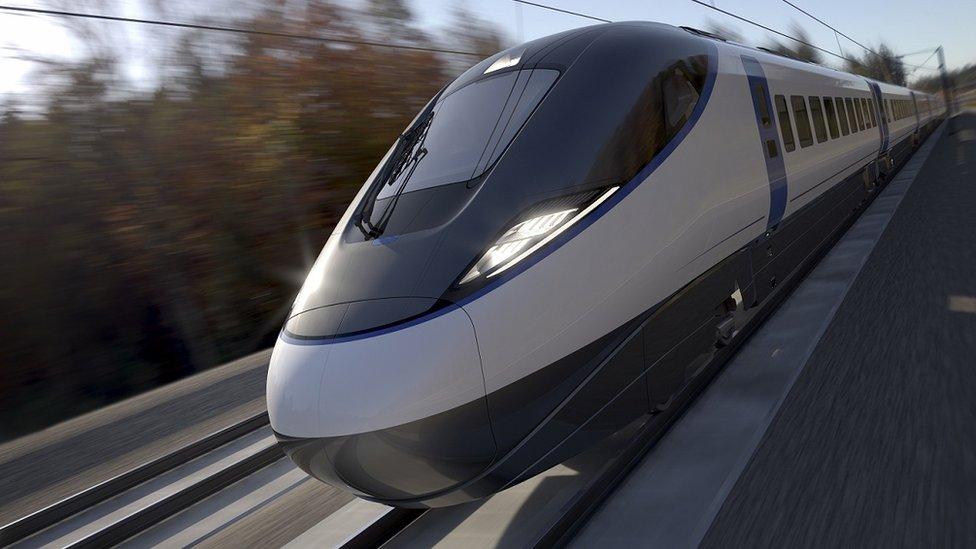
- Published9 March 2023
